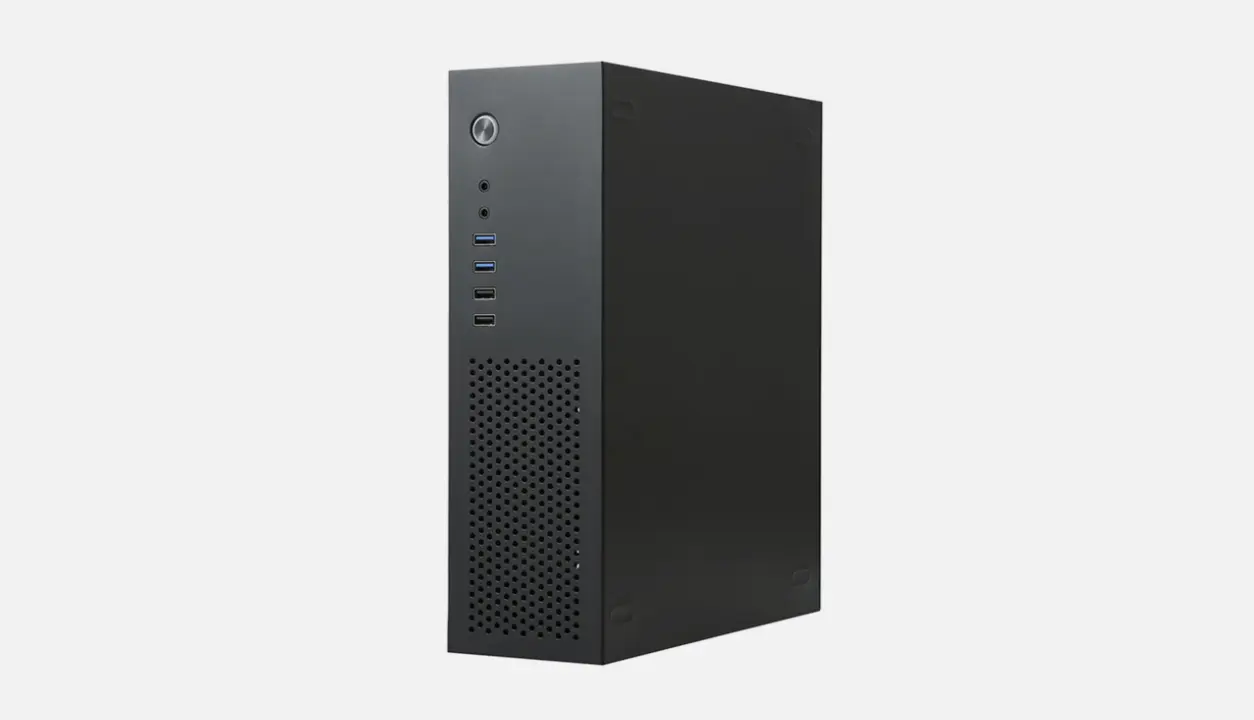After getting a PhD, making a statistics app, and installing ethernet cable around my house, I decided I still wasn't enough of a nerd, so I thought it was time to step things up a bit and enter the nerd stratosphere: that's right, it was time I built my own games console.

Why?
Well, why not? I do already have a games console, of course. Ever since they took the reins from Sega, I've been loyal to Xbox, owning every model since the original in 2001, and have generally been very happy with them.
However, playing games today is a completely different story. Now, when I decide I want to play a game, I turn on the console and am told it needs an update. When it's finished and I'm ready to play the game, that needs an update too. Pretty soon, the 30 minutes I've set aside to play a game has gone and, because I'm so annoyed, I don't touch it again for another month - when exactly the same thing happens.
Buying a disk and putting it in doesn't work either, because games don't actually run from disks now; they need updates before you can use them. However, these downloads are usually about 30Gb, so they're not actually updates at all - they're the entire game. That means having a disk with a game on it is effectively pointless because the console just ignores it. You've basically just paid for some plastic with a serial number, and that whole system seems a bit broken to me.
This isn't just a problem with Xbox, of course, it's a problem that all consoles have. Still, since Nintendo are an overly-litigious, anti-competitive company who play dodgy marketing tricks, sabotage eSports events, and shut down charities, I obviously won't be buying anything from them. Then we have the Sony PlayStation, which has about as much charm as the cardboard box it arrives in.
I'm still a bit salty about Sony barging Sega out of the console market. Can you tell?
That just leaves PC gaming. Aside from my humble efforts to play Worms and Rollercoaster Tycoon in the 00s, I've really been a serious PC gamer. This is because getting the same performance out of a PC that you do from a modern games console isn't really possible without a lot of time, know-how, and a small mortgage.
Game consoles are actually very cheap for what they are and the companies making them usually sell them at a loss when they launch. This is done deliberately to encourage more people to buy them so they have a bigger pool of people to sell games to (which is where they make most of their money). You don't get that luxury with gaming PCs; you have to pay exactly what the stuff inside them is worth.
The price of a top graphics card that matches those in new consoles will make your eyes water. Even if you do manage to find the cash for that, soon you'll be sucked in and it won't be enough, so you'll have to spend £3 000 on a better one and then rave about the extra 2.4 frames per second you're getting from your gaming PC. You'll also start calling it a "rig" for some reason.
That's not the only problem.
I don't really want a computer tower next to my TV in my living room. I also don't want to wait for it to boot up, type in a password, and then double click something on the screen every time I want to open a game. In fact, I don't really want a keyboard and mouse, full stop. Tapping a mouse button to fire a double-barrelled shotgun feels a bit anti-climactic somehow, and playing a platformer with a keyboard is like trying to rewire a plug with chopsticks. Surely there must be another way?
There is.
Steaming ahead
The latest big thing in gaming is the Steam Deck. The Steam Deck is a handheld console, much like a Nintendo Switch, but with much more power, a much bigger games library, and no ties to an evil company masquerading under the friendly face of a gormless cartoon plumber.
The Steam Deck is a marvellous piece of kit, but a handheld console might not be everyone's cup of tea. That's fine though, because the best thing about a Deck isn't actually the device itself, it's what powers it; SteamOS. SteamOS is an operating system that runs the popular game library Steam in a nice user-friendly (and controller-friendly) interface designed specifically to emulate the experience of using a console, and it can be installed on anything. That's exactly what I wanted, so that's exactly what I did.
To get a "Steam Machine", I needed to build an actual console myself. So, first, I got a case. I wanted a small case that slotted under the TV nicely that was about the same size as a normal console. The case I chose also came with a power supply and a fan, which is excellent, because I had absolutely no idea where to buy those.
I then got a motherboard (Gigabyte A520I), processor (an AMD Ryzen 5 5600X), and RAM (Corsair DDR4 16Gb). I had a spare hard disk lying around, because I'm a nerd, and that just left the graphics card. For this, I went with the AMD Radeon 3600XT. OK, it's not exactly Xbox Series X or Playstation 5 spec, but that doesn't matter; it just means I play games at "high" settings instead of "very high", and I'm not losing too much sleep over that.
I decided to buy all the components I needed from eBuyer, eBay, and SCAN. Of course, I could have got them from Amazon, but I wanted the packages to actually be delivered by a competent delivery driver and not dropped on the ground vaguely outside my house like a petulent child.
If you add all that up, you'll find that I spent roughly £500. You'll also find that £500 is more than a games console costs and immediately call me a hypocrite. I have a defence for that, but you'll have to wait a few paragraphs to hear it.
Once I had everything, I put it all together on my dining room table without any protection from static (I was fine) then fired it up. I used Bazzite to get an operating system preloaded with Steam OS, followed the on-screen instructions and, after a quick restart, was up and running.
Now, I have all of the games I've bought in my Steam library over the years on this neat little box that functions exactly like a games console. I turn it on with a button, connect my Xbox controller to it via Bluetooth, and I'm away. It doesn't constantly beg me to update it, doesn't shut me out of games when they want an update, and the whole experience is silky smooth.
I can also play every game I've ever owned on it, thanks to the power of Emudeck (a collection of games console emulators from the Amiga to the Xbox 360) alongside any other game I want. Steam has just about every game ever released, with the vast majority of games you can get across Xbox and PlayStation, including some major titles that were exclusive to those platforms.
Now, my defence: I may have had to pay out more for my initial console but, now I have it, I can make up the cost in a few different ways.
Firstly, games on Steam are super cheap. Steam don't have the same big licencing fees as the other big players in the games industry (as they don't need to make up for a loss on console sales). They have the same (recommended) retail price but, if you wait around long enough, they'll casually knock 75% off that at some point and, if you hang around until the summer sale, you'll probably get it for £2.50.

95% off? Oh, go on then.
One advantage gaming PCs do have over consoles is that you can upgrade everything in them separately whenever you want. Most of the components in a console (or computer) will last indefinitely. For instance you never really need to buy a new case, power supply, fans, or even a hard drive. The most important bits are the graphics card and processor, and you don't have to upgrade those any more often that you would normally buy a new console.
There. That's the defence.
The future of gaming
Now is a good time to invest in a Steam Machine because the games market as we know it has reached a bit of an impasse.
Xbox are busy exploring cloud gaming, and may well focus on that over making consoles (you can get everything you need to play Xbox games without a console now). Sony remain as stubbornly uncreative as they always have been, and Nintendo are on the path to irrelevancy. Neither can compete in the cloud gaming market (which is clearly where the industry is heading) and they both face tough competition from a new wave of handheld consoles flooding the market.
So, do yourself a big favour and get on the Steam train now. If you don't want to be a complete nerd and build one yourself, you can pick up a pre-made console-type mini PC that will work as one just fine. PC games have always been designed to play on a wide variety of different computers, so getting hold of a cheap machine to start off with is a great way of dipping your toe in the water. Otherwise, you could just hold off until Steam release their own games console. When they do, I predict great things.